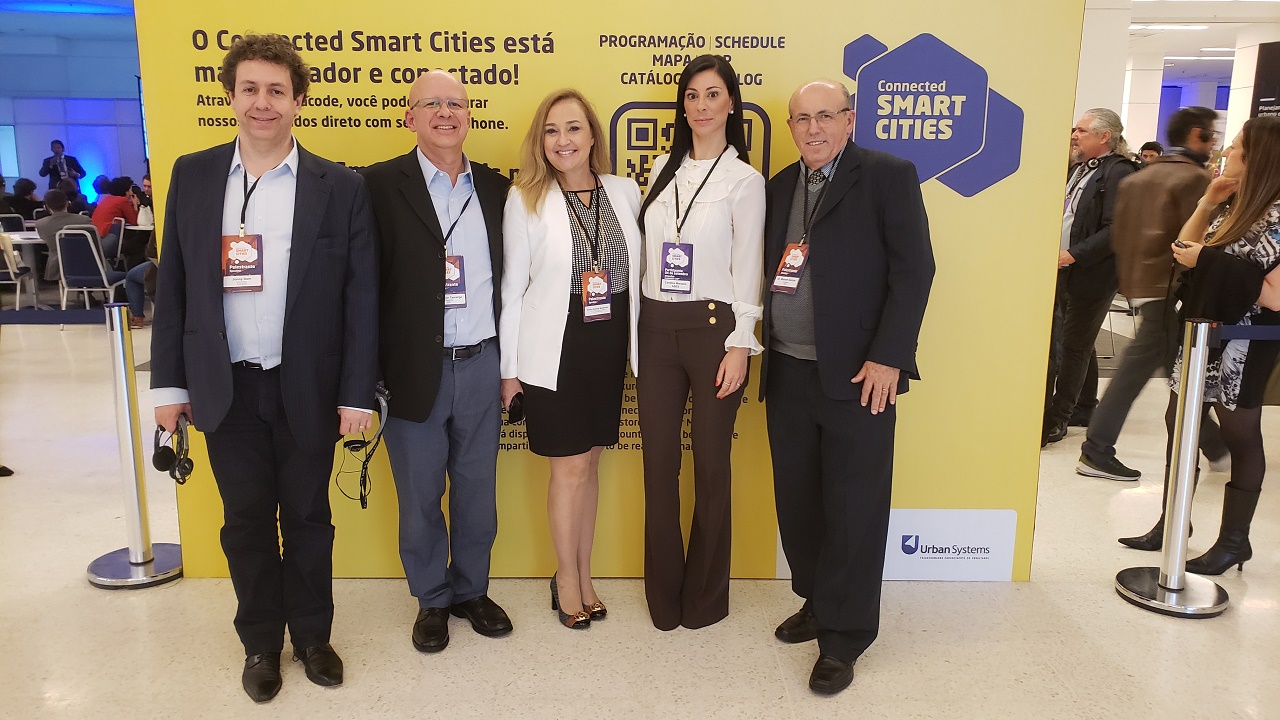
Association promoted workshop during Connected Smart Cities
In the panel “Fundamental Rights of Cybernetic Citizens and Compliance”, which was moderated by Carolina Marzano, compliance officer at ABES, Viviane Maldonado, former judge and professor on data privacy, outlined a scenario of the legal basis for the use of data and listed some rights of citizens correlated with the level of current and future technology. “I christened rights 4.0, which were unthinkable not long ago”. The first of these is biometric identification from birth and document unification, followed by the right to connectivity. “The disruption of connectivity in our current environment means losing the right of access to information”.
Data security is another right pointed out by Viviane. “This includes personal data, information about political position, personal preferences, health data and many others”. Denying the right to access smart devices would also be a case of violation. Viviane also highlighted that the legal order cannot represent a risk of impugning the right of free enterprise and free competition. Finally, she stressed that every human being has the right to disconnect.
Juridical insecurity - The legal uncertainty of some points of the General Data Protection Law was the aspect addressed by Manoel dos Santos, legal director of ABES, who warned of the imprecision of the understanding of the scope of the law with regard to the treatment and consent to the use of Dice. "Evidence of consent must be unambiguous."
Sanctions are another point of concern for Santos: “The imposition of the fine, which can reach R$ 50 million, does not exempt the responsible party from the responsibility of repairing the damage”, he said, stressing that justice may even reverse the burden of proof, as in the Consumer Defense Law. “We hope that the regulation of the law will be coherent to resolve doubts and that an independent data protection authority will be created”.
The virtual and the physical – “In smart cities, things act and have location and go from the virtual to the physical realm”, analyzed Jonny Doin, vice president of Cyber Security at the Smart City Business America Institute (ISCBA), citing as an example an intelligent traffic light that, by failing and allowing accidents to occur, it makes clear the responsibility of the corporate interfaces involved in the contract. “This is the point of trust that the citizen has, the expectation that everything works properly. This aspect is new, it belongs to the same class of fundamental rights that must be understood by all of us”.
Privacy Challenges – “We are facing the challenge of the century, which is to equate privacy versus use, privacy versus innovation. To enjoy the facilities and comfort that connected technology provides, will we have to give up privacy?”, questioned Francisco Camargo, president of ABES. Regarding legal certainty and the impact of the new law, the executive commented that “ABES has verified that legal uncertainty does not come from the lack of regulation, but from the excess of rules, laws, bureaucracy and tax complexity. We postulate that the legal norms are accompanied by impact analyses”.












